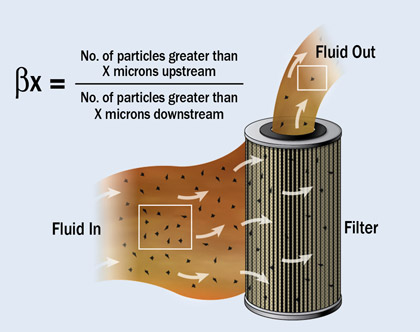Every time you start your car’s engine, a complex symphony of moving metal parts springs into action. At the heart of protecting these crucial components is your vehicle’s oil filter – a seemingly simple but incredibly important part of your engine’s health system. Understanding the role of oil filters can help you appreciate why regular maintenance is so vital for your vehicle’s longevity.
The Basic Function of Oil Filters
At its core, an oil filter serves one primary purpose: to remove contaminants from your engine’s oil before they can cause damage to the engine [How to choose the right oil filter]. Engine oil circulates through your engine to lubricate moving parts, reduce friction, and help cool the engine. During this process, the oil picks up various contaminants that could potentially harm your engine if left unchecked.
Your car’s oil filter works tirelessly to remove several types of harmful particles from your engine oil:
- Metal Particles: Tiny shavings from normal engine wear
- Environmental Contaminants: Dust, dirt, and debris that enters the engine
- Carbon Deposits: Byproducts from the combustion process
- Oxidized Oil Particles: Degraded oil that can form sludge
- Metallic Particles: Fragments from aging engine components

Think of your oil filter as your engine’s kidney – it continuously cleanses the lifeblood (oil) that keeps your engine running smoothly. Without this crucial filtering system, your engine would quickly become damaged by the very substance meant to protect it.
The Filtering Process Explained
Understanding how an oil filter works helps explain its importance in engine protection. As oil enters the filter, it passes through a special paper element that catches larger particles. This paper is designed with specific pore sizes to trap harmful debris while allowing clean oil to flow through. Many modern oil filters include additional filtering materials or screens that catch smaller particles missed by the primary filter.
Modern oil filters contain several key components that work together:
- Filter Media: The primary filtering material that traps contaminants
- Anti-Drainback Valve: Prevents oil from draining back when the engine is off
- Bypass Valve: Allows oil flow if the filter becomes clogged
- Center Steel Tube: Supports the filter media and directs oil flow
- End Caps: Seal the filter media and maintain proper oil flow
Impact on Engine Performance and Longevity
A properly functioning oil filter contributes to your engine’s performance and longevity in several crucial ways. By removing abrasive particles from the oil, the filter helps prevent premature wear on engine components. Clean oil maintains its viscosity and lubricating properties, ensuring optimal protection for moving parts.
Clean oil flows more freely through engine components, reducing the work your engine must do to maintain proper lubrication. This improved efficiency can contribute to better fuel economy and overall performance. Regular oil and filter changes help prevent the accumulation of harmful deposits that can lead to engine damage.
Common driving conditions that affect oil filter performance include:
- Stop-and-go City Traffic: Increases oil contamination
- Dusty or Sandy Environments: More particulates enter the engine
- Extreme Temperatures: Affects oil viscosity and filter efficiency
- Heavy Towing or Hauling: Increases engine stress and oil degradation
- Short Trips: Prevents oil from reaching optimal temperature
Warning Signs of Oil Filter Problems
Recognizing potential oil filter problems is crucial for maintaining your engine’s health. Here are key indicators to watch for:
- Decreased Performance: If your engine seems sluggish or less responsive
- Unusual Engine Noises: Metal-on-metal sounds, especially during startup
- Dark or Dirty Oil: Unusual darkness shortly after an oil change
- Check Engine Light: While not always filter-related, some vehicles monitor oil pressure
- Poor Fuel Economy: A clogged filter can affect engine efficiency

The Relationship Between Oil and Filter Quality
The effectiveness of your oil filter is directly related to the quality of oil you use. Synthetic oils typically produce fewer contaminants and can help your filter work more effectively for longer periods. Traditional oils may break down more quickly and create more contaminants, potentially requiring more frequent filter changes.
Benefits of using high-quality oil filters include:
- Better Filtration Efficiency: Captures more contaminants
- Longer Service Life: Maintains effectiveness for extended periods
- Improved Flow Rates: Better oil circulation throughout the engine
- Enhanced Engine Protection: Superior materials and construction
- Greater Dirt-Holding Capacity: Can trap more contaminants before needing replacement
Environmental Considerations and Maintenance Best Practices
Oil filters play an important role in environmental protection, as proper disposal of used filters prevents environmental contamination. Additionally, a clean oil filter helps your engine run more efficiently, potentially reducing emissions and fuel consumption.
To ensure your oil filter continues protecting your engine effectively, follow manufacturer recommendations for replacement intervals and invest in quality filters from reputable manufacturers. The small additional cost is insignificant compared to potential engine repairs.
Conclusion
The role of oil filters in protecting your engine cannot be overstated. This humble component works continuously to remove harmful contaminants from your engine oil, preventing premature wear and potential damage to your engine’s vital components. Understanding what an oil filter does in your car helps emphasize the importance of regular maintenance and quality replacement parts.
By maintaining a proper oil and filter change schedule, you’re investing in your engine’s longevity and performance. The relatively small cost of regular maintenance pales in comparison to the potential expense of engine repairs or replacement due to inadequate filtration.
Remember that your oil filter is your engine’s first line of defense against harmful contaminants. Treating it as the crucial component it is will help ensure your engine continues to run smoothly and efficiently for years to come.